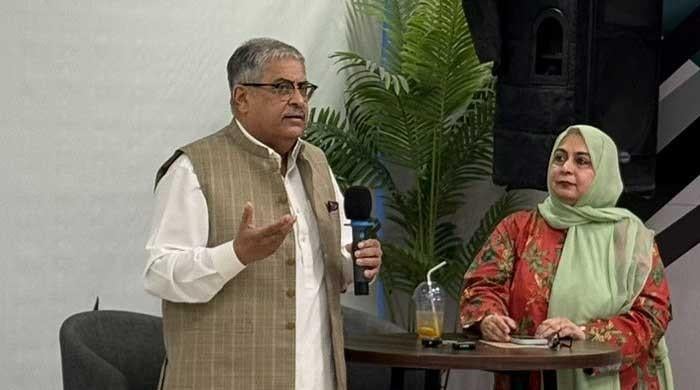Justice Athar Minallah Voices Concerns Over Judicial Independence
Justice Athar Minallah of the Supreme Court has expressed apprehensions regarding the independence of Pakistan’s judicial system, asserting that the nation requires “an independent judiciary and judges.”
Speaking at an event organized by the Defence of Human Rights, Justice Minallah stated, “If the state is implicated in cases of missing persons, the courts are rendered powerless.”
The Supreme Court judge lamented the difficulty in speaking truthfully, noting that those who do are “hated the most,” and described cases of missing persons as “most difficult.”
Justice Minallah’s comments are made amidst widespread allegations from various organizations and societal segments concerning human rights abuses related to enforced disappearances in the country — accusations that the government and state institutions strongly refute.
The judge’s appeal for judicial independence should be viewed in light of a letter from five Islamabad High Court (IHC) judges to the Supreme Judicial Council (SJC) in 2024, which detailed alleged interference by executive branch members, including intelligence agency operatives, in judicial matters.
The IHC judges who authored the letter include Justice Mohsin Akhtar Kiyani, Justice Tariq Mehmood Jahangiri, Justice Babar Sattar, Justice Sardar Ejaz Ishaq Khan, Justice Arbab Muhammad Tahir, and Justice Saman Fafat Imtiaz.
Earlier in the week, the National Judicial Policy Making Committee (NJPMC), headed by CJP Yahya Afridi, decided that any judge experiencing external interference in judicial matters must file a complaint within a 24-hour period.
Recalling the positive impact of his judgment on the missing persons issue for four years, he recounted, “I informed my officer that I would not tolerate missing persons cases in my jurisdiction.”
He further stated, “I declared in the decision that no leniency would be granted to any government official involved in missing persons cases.”
Emphasizing the state’s duty to safeguard its citizens, the SC judge underscored the government’s responsibility for accountability and universal protection.
“Each judge of the Supreme Court bears responsibility for violations of fundamental rights in Pakistan,” he declared. “The girls and women of Balochistan weep in the streets; we should feel ashamed.”
Highlighting the personal importance of the issue, Justice Minallah noted that students from Balochistan sought recourse from the IHC — where he previously served — despite the availability of the Supreme Court.
“People trusted the IHC and approached it from across the nation because the judges there were independent,” Justice Minallah stated, adding that the Baloch students’ case fell outside his court’s jurisdiction.
“I even wrote to the chief justice emphasizing that the violation of fundamental rights is the most significant issue [in the country]…. [However,] nothing came of my letter; I lacked the authority to act.”
Affirming his respect for parliament and the elected officials who have been “affected” for the past 77 years, Justice Minallah suggested that neither the government nor the judges seemed willing to acknowledge missing persons as a problem.
“Those in government have been unable to speak the truth for 77 years,” he observed, adding that political parties undergo a complete transformation upon entering the opposition.
“If we speak honestly, the situation will improve. The truth is universally known, but not all of us are willing to acknowledge it,” the judge concluded.



Comments (0)
No comments yet. Be the first to comment!
Leave a Comment